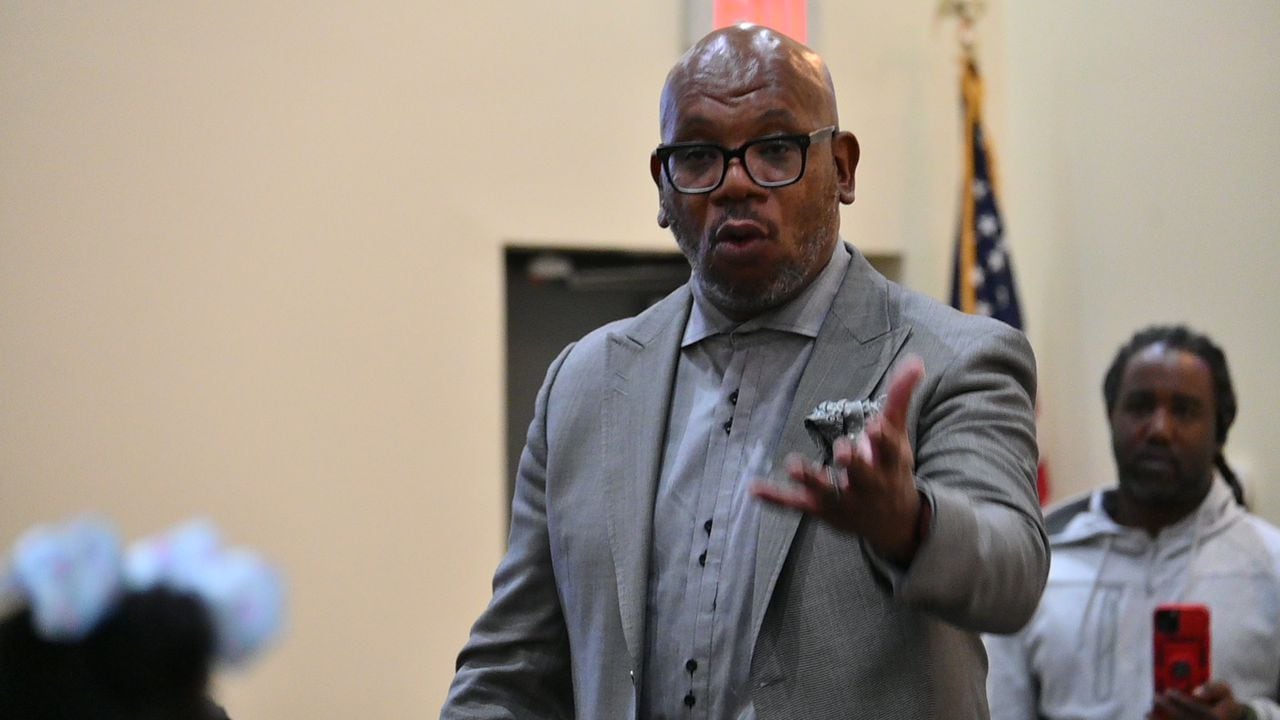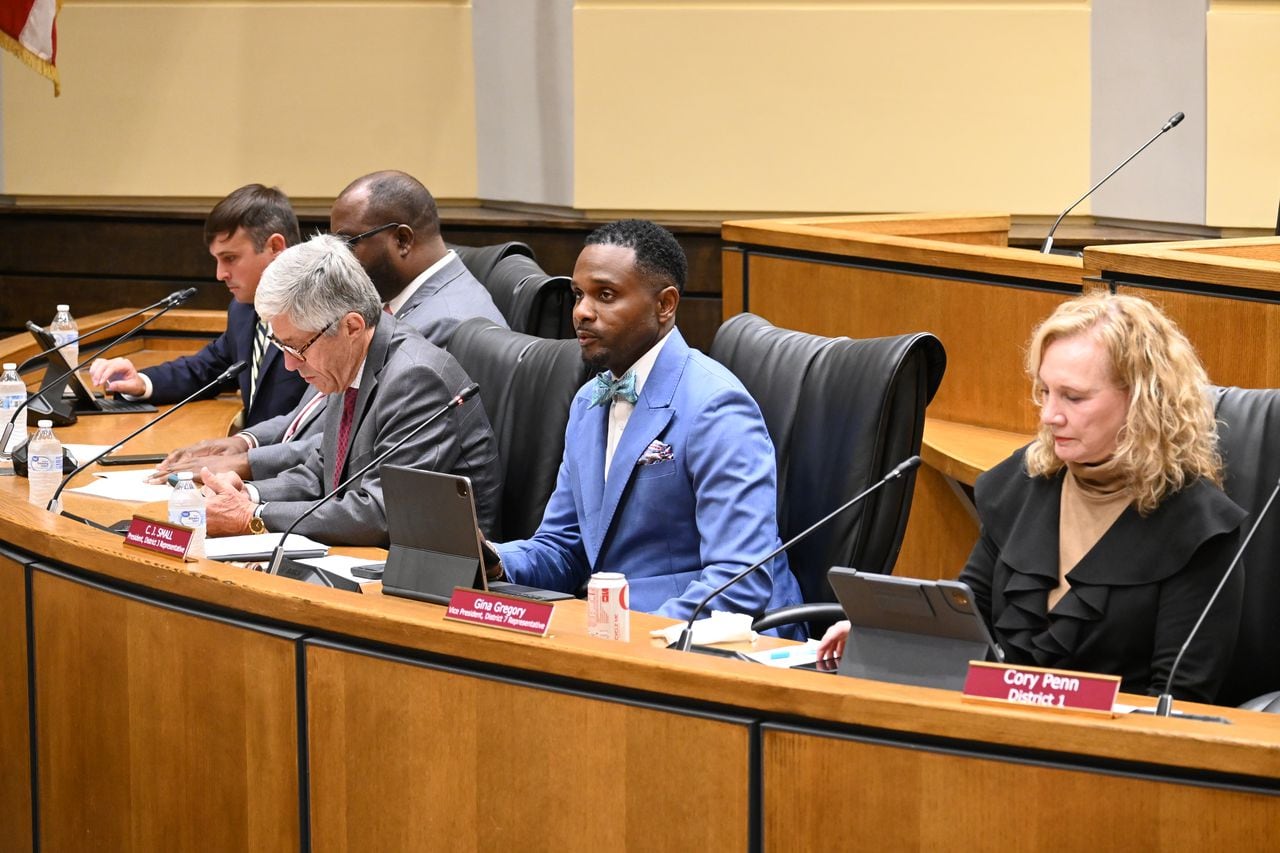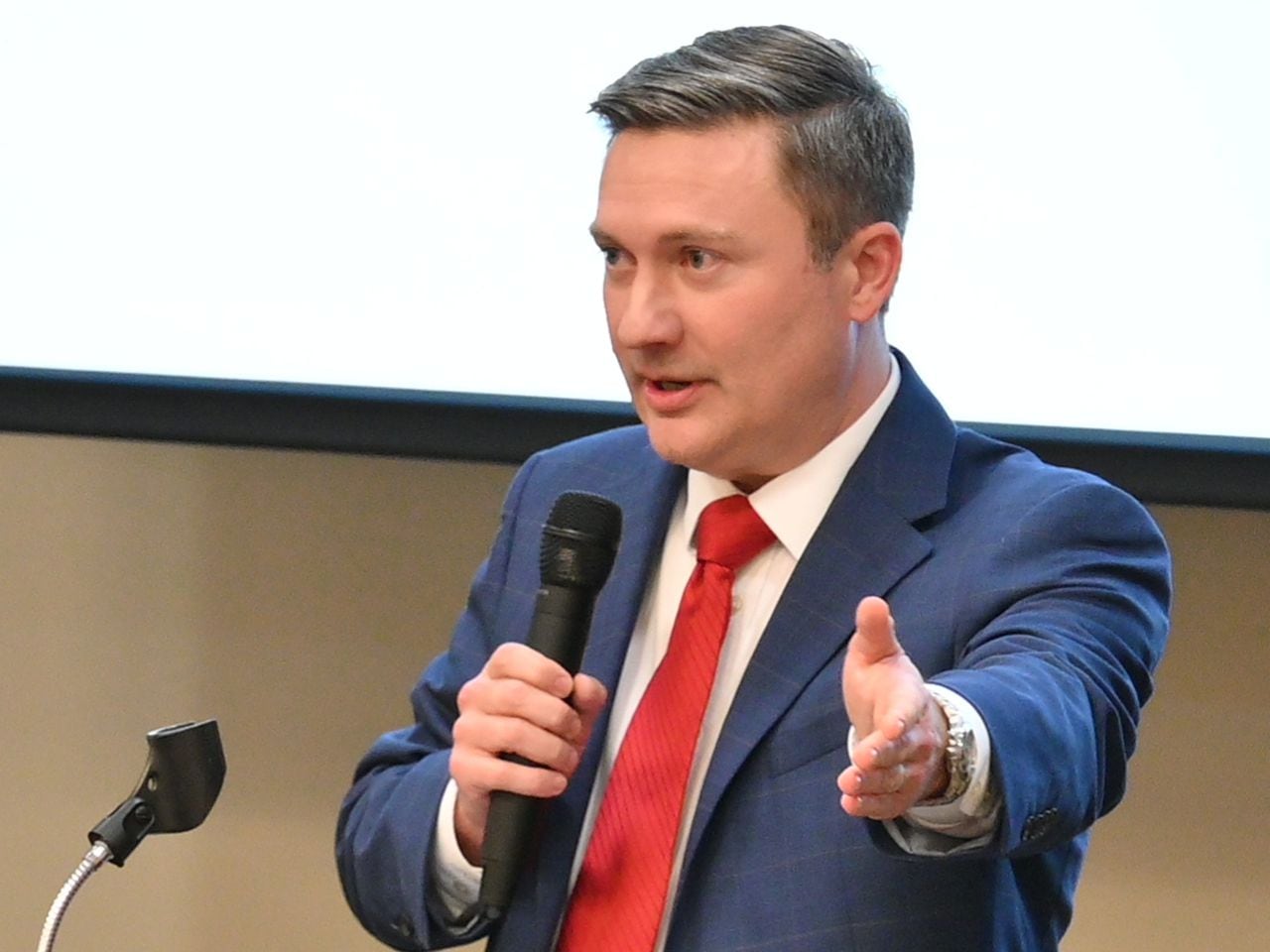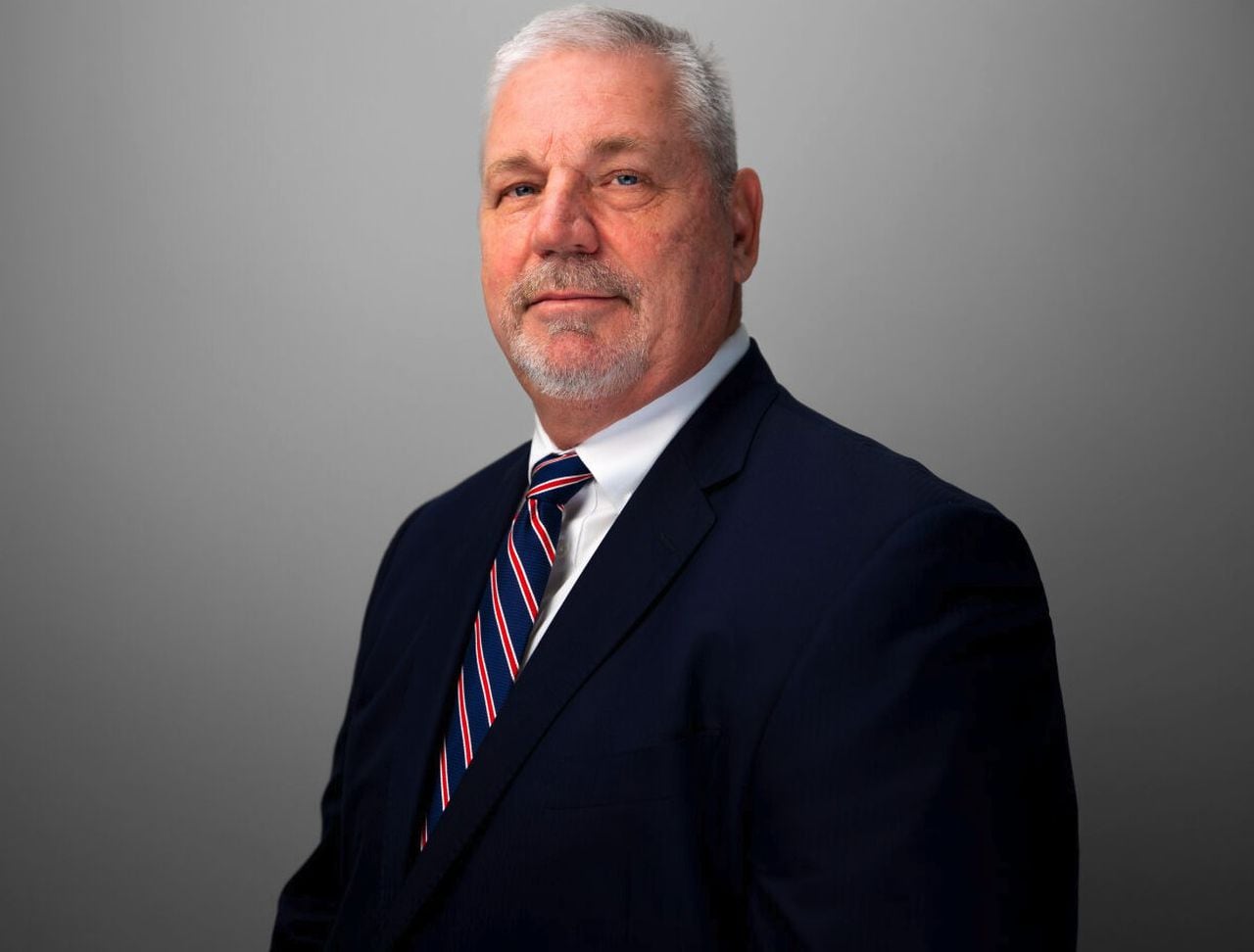Jawan Dallas family to review body camera footage of his deadly encounter with Mobile police
For 4-1/2 months, the family of Jawan “Jay” Dallas have repeatedly asked to view the police-worn body camera footage of his deadly July 2 encounter with Mobile police officers.
The family has been denied every time they asked. But that all changes at 10 a.m. on Wednesday, when family members and their attorneys will meet in downtown Mobile with city officials to review the footage.
Civil rights attorney Harry Daniels and Mobile NAACP President Robert Clopton are to participate in a press conference afterwards. The family is represented by Daniels and civil rights attorneys John Burris, Ben Crump and Lee Merritt.
The review of the video comes eight days after Mobile County District Attorney Keith Blackwood announced that a grand jury probe into Dallas’s death had been completed, and that no charges would be filed against the officers involved.
“We’ve been down here asking for justice for Jay Dallas, and asking for transparency,” said the Rev. Tonny Algood, pastor of the United Methodist Inner City Mission, during Tuesday’s Mobile City Council meeting. “Now we’re told the mother and father will have access to the body cams. Folks, this is too little too late.”
Fallout
The viewing also comes during a tense time in Mobile, following deadly encounter between police and a 16-year-old teenage boy on Nov. 13, following a police raid in which the teenager was not the intended target. The killing prompted Mobile Mayor Sandy Stimpson to immediately order most pre-dawn raids be suspended.
It was the fourth deadly encounter involving Mobile police in 2023.
The fallout continued on Tuesday, as authorities confirmed they had reached out to former U.S. Attorney Kenyen Brown to review the policies and procedures of the Mobile Police Department related to officers’ use of force.
Rob Lasky (City of Mobile)
Rob Lasky, newly-appointed executive director of public safety, said a contract with Brown, who is a partner at a D.C. law firm, is in the process of being finalized.
“We’re being proactive,” said Lasky, a former Special Agent in Charge of the Mobile Division of the FBI. “We’re talking to Kenyen. I’ve known him since 2019. We want to get the review done as quick as possible.”
Lasky also announced that a committee is in the process of forming, and that it will consist of concerned citizens and community activists who will provide feedback on police policies and procedures.
He said that five people had been identified for a committee that he envisions consisting of at least a dozen members, and as many as 15.
The committee will not be like an advisory committee, which once existed in Mobile.
“We wanted to increase the communication with the community in general, and the transparency,” said Lasky. “We want to put together a group of 15 individuals and have regular meetings whether it’s once or twice a month … so we can open communication lines and so each side can understand where the other is coming from so we can be a more unified public safety group.”

Rev. Marvin Charles Lue Jr., senior pastor at Stewart Memorial CME Church, speaks during the Faith in Action Alabama Mobile Hub gathering on Monday, April 17, 2023, at Mt Zion Primitive Baptist Church in Mobile, Ala. The meeting was held to discuss strategies toward action in ending gun violence in Mobile, and to seek action in attaining justice following the policing shooting death of 25-year-old Kordell Jones on March 7, 2023. (John Sharp/[email protected]).
The Rev. Marvin Lue, senior pastor at Stewart Memorial CME Church and who is expected to join the group, said there needs to be a “change of policies, procedures” and possibly a change in police personnel within the police department.
He also said that the group should be formed as quickly as possible, and before next month’s holidays are underway.
“The change needs to happen immediately,” said Lue, who has led community efforts to combat gun violence and who has called for more police transparency since the March 7 shooting death of 25-year-old Kordell Jones during a police raid at a house in which authorities were searching for his brother.
“There is something embedded in some of those who are called to protect and serve that is leading them in tactics that are being detrimental instead of being beneficial, especially to communities of color,” Lue said.
Body cam ordinance

Mobile City Council President C.J. Small oversees the council’s meeting on Tuesday, Nov. 21, 2023, at Government Plaza in downtown Mobile, Ala.John Sharp/[email protected]
The public talks over policing will continue into next week, when the council’s public safety committee meets at 1 p.m. to talk about a proposed ordinance requiring police to provide a reason for denying the release of body cam footage.
“What I’d like to see is for citizens to know that we’re being as transparent as much as we can,” said Council President C.J. Small. “The citizens are asking about the footage of the body cameras. We are doing as much as we can to address their concerns.”
There isn’t much the city can do, especially in a state that does not grant home rule authority to local governments.
The ordinance follows a new Alabama state law, which went into effect on Sept. 1, that allows people whose image or voice are the subject of body cam or dash camera recordings to file a written request to view them. The new law also applies to immediate family members.
But the law continues to allow law enforcement the ability to deny the footage’s release.
The public release of body cam footage has been shot down before by the state Supreme Court. With an 8-1 ruling in 2021, the Alabama Supreme Court determined that police bodycam and dashcam videos were deemed investigative materials and were exempt from disclosure requirements of the state public records law.
Under the city’s proposed ordinance, police will be required to provide a written statement identifying the legal reason for not disclosing a “law enforcement recording.” The reasons have to include the state’s grand jury secrecy act, the presence of an active criminal investigation that involves the recordings, or any other proper legal basis under state and federal law.
Small said the point of the ordinance is to “change the protocols in the Police Department.”
Some changes have occurred as the police shootings raised public awareness over the handling of body cam footage.
Following the Nov. 13 shooting, the family of the 16-year-old teenager were allowed to immediately view the body cam footage. The boy’s mother then told local media outlets that her son was “murdered” by police.
The Dallas family was not allowed to view the footage because it was forwarded to the District Attorney’s Office for a grand jury review before the family had a chance to review it.
Questions have surfaced in recent months over the handling of the footage, zeroing in on why certain matters were allowed before the Dallas family was allowed to view the footage.
Mobile Police Chief Paul Prine, in October, said the officers involved in the encounter with Dallas were not a threat to the community and announced they had been allowed to return to their patrols. The officers’ names have never been released.
Dallas family supporters have since accused the officers of murdering the 36-year-old man.

Mobile County District Attorney Keith Blackwood at a Turning Point USA event on Monday, April 10, 2023, at the Marx Library on the campus of the University of South Alabama in Mobile, Ala. (John Sharp/[email protected]).
Blackwood, during a news conference last week, said Dallas died from an underlying medical condition and not from being tased by police. Blackwood also claimed that Dallas initiated the struggle with police, which exacerbated the medical condition.
“Mr. Dallas suffered from some serious underlying medical issues. Those issues were exacerbated by drug use,” Blackwood said during a news conference. “When Mr. Dallas initiated the struggle with police, that situation also exacerbated the underlying medical conditions.”
He said that toxicology testing detected two different drugs in Dallas’ system.
“One was mojo, which is a synthetic cannabinoid, and the other, I believe, was an amphetamine of some kind,” Blackwood said.
Dallas family supporters, some who were at Tuesday’s council meeting, remain unconvinced that police had nothing to do with his death.
“(The officers) approached him,” said James Jackson Jr. of Mobile. “The police chief and DA are saying that policemen had nothing to do with it. They had a lot to do with it. He wasn’t supposed to be approached in the first place. It’s a concern that these police officers are on the street and Jawan will not be at the dinner table with his mother.”
He added, “I bet, 100-to-1, he would still be alive if not confronted by those police officers.”
